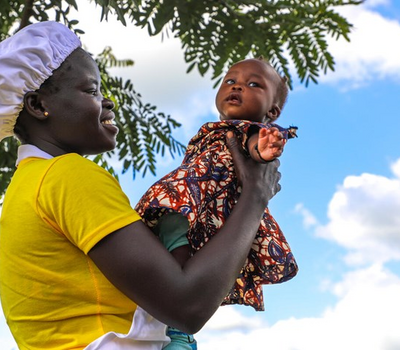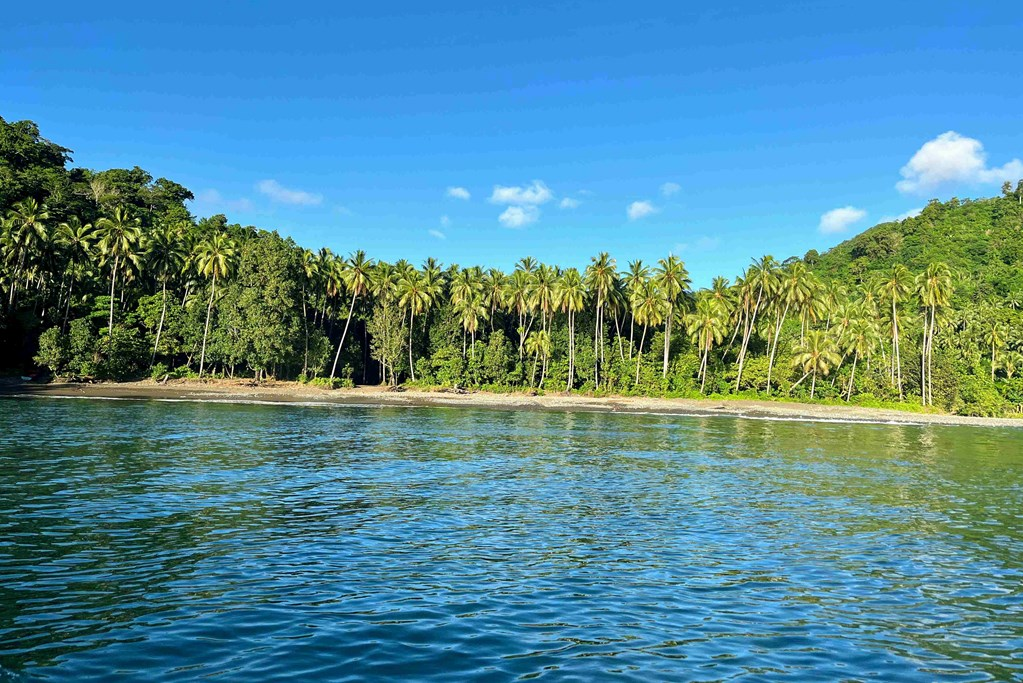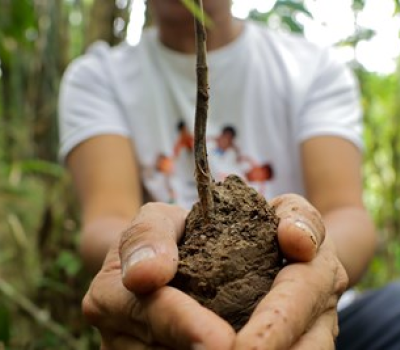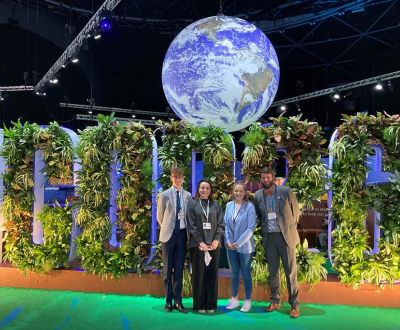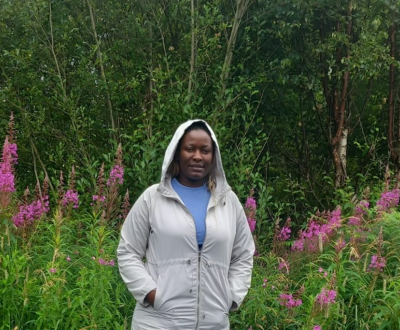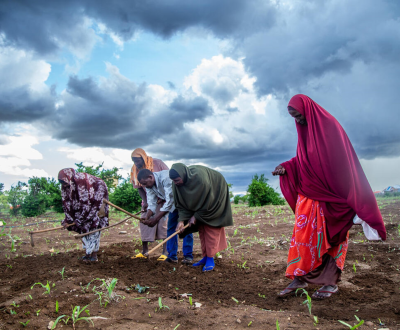
From the team
Written by Maurice Sadlier - World Vision Ireland's programmes & policy director
Follow Maurice on Twitter/X: @mauricesadlier
Despite being from landlocked Tipperary I’ve always loved the sound of the sea – I put it down to being half a Kerry man! On a recent visit to Solomon Island the soothing sound of the sea took on a different meaning. Every night I slept no more than 200 meters from the sea and could hear the rolling waves crashing against the shore. It sounds idyllic and relaxing even, that is until I spent time in the communities we work with and hearing how climate change is impacting their lives.
Solomon Islands, a country of approximately 800,000 people spread across nearly 1,000 islands in the Pacific. The total land mass is 28,400 km², so slightly bigger than the province of Munster. Solomon Islands is one of Pacific's poorest countries and among the worlds most vulnerable to the impacts of climate change.
My recent trip to Solomon Islands was to complete a Climate Risk and Vulnerability Assessment for Food Security and Nutrition with communities there. This activity is to help us respond better to the needs of communities but also to ensure that the plans that are developed are informed and driven by the realities of community members. While I am well aware of the impacts of climate change on the worlds poorer countries, it is always sobering to spend time in the communities and hear their lived reality first hand.
Over the week, I spent time in the small community of Toroa on the Island of Makira. An hour-long boat journey from the provincial capital Kirakira, Toroa is nestled behind a row of coconut trees in a small bay and is home to 267 men, women, boys and girls. There is no phone or electricity, no health centre or staff, or secondary school in the small village with most of the community living off subsistence farming or fishing.
It is in Toroa that you really see the injustice of climate change
A community with a miniscule carbon footprint is being buffeted by the impacts of climate change. Samuel the local church leader told me of the ever-rising sea level, the coconut trees he has know since he was a boy are now being swept away by high swells and king tides. In addition to rising sea levels, children told us about the hazards their community faces. Flooding and landslides carrying crops out to sea, increased ferocity of cyclones damaging banana plantations, unpredictable weather patterns including increased rainfall and temperatures damaging crops and increasing the occurrence of pests and disease. Community member Wickenson told us that twice in the last year he has lost crops due to landslides. His coping mechanism is to plant crops in multiple sites in the hope that some will survive. The sound of the sea in Toroa has ominous overtones – it is a constant reminder of the need for more ambitious climate action by all nations.
But it is because of these challenges that you find World Vision in Solomon Islands and communities like Toroa. This is what we are called to do, reach those who are furthest behind and most vulnerable. With support from Irish Aid, we are working with communities across Makira Province to build their resilience to the impacts of climate change. Our NOURISH, or to give it its full title Nature-Based Opportunities Underpinning Resilient and Sustainable Households, programme works to ensure that vulnerable children are well nourished in climate resilient households and communities. Our programme takes a multi-pronged approach; we are working to improve household income through nutrition-sensitive and climate-smart approaches. In Solomon Islands this includes improved storage of fishery products to increase access to markets, processing of coconuts and diversifying the crops grown by households. We are also working with the Ministry of Health and local partners to increase household knowledge and practices around nutrition.
Given the significant hazards the communities face we are working together to strengthen disaster risk reduction and management strategies so that when disasters strike communities have the skills and capacity to respond swiftly. This includes installing flood warning systems so communities can take swift action before disaster strikes, in also includes identifying and ensuring access to safe shelter in times of disaster for community members.
While early days we are already seeing positive results at community level and over the next four years we will continue to work with the communities to build their resilience. But we also need much more ambitious climate action in Ireland and globally and we will continue to advocate for this. Solidarity with our fellow Islanders in the Pacific demands us to do so.
Find out more about
